- Home
- Kay Hooper
The Haunting of Josie Page 2
The Haunting of Josie Read online
Page 2
Josie couldn’t help smiling, but her amusement changed to embarrassment when he went on dryly.
“So you don’t have to be afraid I’ll make a nuisance of myself for too long.”
“I didn’t—”
He chuckled, a low sound of genuine amusement. “No, you didn’t say so, but I don’t blame you for wondering. I’ll admit, finding out I’d have a tenant in the house raised my spirits a bit, and I do hope you won’t get too upset with me if I borrow a cup of sugar now and then—but I promise I won’t try to use you to alleviate my boredom.”
“Fair enough.” She managed to keep her voice light, but she knew her face was still filled with color because she could feel the heat. It was another of her curses; her skin was very pale, but embarrassment instantly brought a vibrant blush to her cheeks. It gave her away every time, dammit. But at least he didn’t comment.
“Good. Now—that said, can I help you unload the van?”
Josie had brought the first load of her belongings to the house early this morning; this was the second and final load, and it was a bit sobering that all her worldly possessions—except for quite a few boxes of books that were in storage—could be stuffed in the cramped space of two vans…. She glanced behind her at the vehicle, still about a quarter full, then at her watch. It was almost five, and with winter approaching, it would soon be dark.
She hesitated for an instant, then said, “I think I’ll leave the rest until tomorrow.”
Mildly, he said, “I can manage pretty well even with the cast, you know.”
Josie eyed him. “I don’t doubt it. But I’ve had enough for one day, I think. Look, I was going to make some coffee—would you like some?”
“I’d love some,” he accepted promptly. “Even with a coffee maker, I don’t seem to have the knack.”
“How do you know I do?” she asked in a wry tone as she reached back to close the van’s side door.
“I don’t—but the odds say your coffee has to be better than mine.”
“We’ll see.” But she wasn’t too worried, because the truth was she knew she could make very good coffee. She used a specially blended fresh-ground variety filled with taste. And a percolator.
As if he had understood their conversation, Pendragon jumped down from his perch and preceded them up the sidewalk to the house, his tail high. Dignified.
Josie had a hunch that the cat would indeed stick around, for a while, and that a newspaper ad would produce no one who had misplaced a beloved pet. There was just something about Pendragon, an air of independence and pride even greater than usual for a feline, and it spoke of self-sufficiency. Still, someone had certainly fastened the decorative collar around his neck and provided a name tag….
He had been somebody’s cat long enough to earn himself a peculiar name, at least.
She dismissed thoughts of the cat as they went into the house, leading the way through the jumble of boxes and furniture still under dustcovers while Marc followed her.
“I should have had this place cleaned before you moved in,” he said suddenly. “The last time must have been right after the interior was painted, and that was six months ago. I’d forgotten how dusty a house could get.”
She glanced back over her shoulder to see him frowning slightly as he looked around. “A little dust certainly isn’t going to hurt me,” she told him. “Besides, I’m sure I’ll settle in better if I spend the first few days cleaning for myself. It’s an excellent way to get to know a house.”
“I could get somebody out here—”
“No, please, I’d rather do it myself.” She pushed open the swinging door leading to the kitchen.
Following, Marc said, “If you’re sure.” He looked around at the bright kitchen, which boasted a line of windows along one side to admit plenty of light, and was painted a cheerful pale yellow. The remodeling work had gone well in here, he decided, and the decision to practically rebuild the room had definitely been the right one.
All the appliances were new, as well as the deep double sink and sparkling fixtures; the tile countertops had been redone in a lovely white marbleized pattern, and the original old wooden table in the center of the spacious room had been replaced by a combination breakfast bar and work island. But even with all the improvements, the room still retained the cheeriness and warmth Marc remembered from his childhood.
“Have a seat,” Josie invited, gesturing toward one of the stools at the breakfast bar. She went to the counter beside the sink, where her percolator was already set out with the bag of coffee. There were several boxes on the counter containing her kitchen things, and a number of dry goods stacked here and there ready to be put away in the pantry; she had already unpacked perishable groceries earlier and placed the food in the refrigerator.
“I meant to tell you before,” she commented. “This is a great house.”
“Thanks, I think so. Plenty of character. It was in pretty good shape when I bought it a few years ago,” he offered, taking a stool at the bar. “Structurally, anyway. It was built back when houses were intended to stand for a hundred years.”
Josie filled the percolator and set it up, looking over at him curiously. “You said this place had belonged to your family since it was built?”
“Yes—though it hasn’t been lived in for any length of time since Luke Westbrook’s death.”
“Why not?”
“I don’t think anybody had the nerve at first; the house was probably closed up for a good ten years or so after his younger brother—my grandfather—inherited it. Since then, it’s been mostly used as a summer house, and passed fairly rapidly from hand to hand until I bought it from an uncle.”
Josie turned and leaned back against the counter, frowning slightly. “Wait a minute. You don’t think anybody had the nerve to live here? Have I missed something?”
“Mmm. The realtor told me there were things tenants had no need to know, but…” He eyed her, a slight smile playing about his mouth. “Do you spook easily?”
“Not so far.” She smiled in spite of herself. “Out with it. I’ve leased a haunted house?”
Marc shook his head. “Nothing so colorful, I’m afraid. I stayed here during quite a few summers while I was a kid, and I can tell you there was never so much as a creaking floorboard or the rattle of a ghostly chain to disturb the night—to the intense disappointment of my cousins and myself. No, it’s human tragedy rather than the supernatural, but quite a few people are either spooked by it—or squeamish. Luke Westbrook committed suicide here in 1944.”
She winced. “How?”
“Shot himself. In that front parlor. At the time it was his study.”
Great. Just where I plan to work. But she didn’t say it aloud. Instead she said, “I knew who he was, of course; I love mysteries, and I’ve read most of his books. But I had no idea he’d killed himself.”
“It was a hell of a story in those days, and got worldwide coverage even with the war going on,” Marc said musingly. “He was fairly young—in his late thirties—and a very successful mystery writer.”
“Then why did he kill himself?”
“According to the note he left, he was convinced he couldn’t write anymore—it had been more than a year since his last book was published—and didn’t want to live the rest of his life trading on existing work and trying to recapture past glory. Or words to that effect. He seemed to feel his only worth was as a writer, and if he couldn’t do that, and do it as well as he had for the better part of ten years, he didn’t want to go on. Apparently, he was well known for having a mercurial temperament, so nobody was much surprised.”
“So the death of a famous mystery writer wasn’t a mystery?”
“Ironic, huh? Judging by some of the remarks I heard from older relatives when I was a kid, I gather the family rather thought old Luke had let them down in more ways than one. A juicy murder would have been preferable to a tawdry suicide.”
“People being what they are,” Josie agreed ruefully.
“Yeah.” He studied her for a moment, the pale gray eyes intent. “So you aren’t bothered by the shadow of violence under this roof?”
“That’s a nice way to put it. No, I’m not bothered. I imagine most old houses have seen episodes of violence. In fact, I once lived in a house where two separate murders had taken place years before. But since there were no mysterious stains on the carpet or ghostly footsteps on the stairs in the wee small hours of the night, I wasn’t disturbed.”
He smiled. “In case you’re wondering, that front room has been completely redone a number of times during the last fifty years. Even the fireplace has been sandblasted.”
“I wasn’t feeling squeamish,” she assured him.
“Good. Now…since you’ve heard all about this house and me, what about you? What compels you to spend a winter way out here in the back of beyond—alone?”
Josie stepped aside to rummage in one of the boxes for a couple of coffee cups and spoons, hoping the action looked more casual than it was. With only a brief hesitation she replied in a light, slightly dry tone. “If you must know, I decided to take a year off my job—I’m a teacher—and find out if I really have the guts and the ability to write.” Which was certainly true, as far as it went.
“You don’t look old enough to be a teacher.”
Josie knew he was fishing. She also knew that she looked a good ten years younger than she was. Resigned, she said, “I’m twenty-eight.”
“You still don’t look old enough to be a teacher.” He was smiling.
“The eight-year-olds I teach haven’t noticed.” She put cups and spoons on the bar, then rummaged in another box for the canister of sugar she remembered packing.
“None of my teachers ever looked like you. Even when I was eight.”
It was the sort of comment, Josie thought, that was usual between a man and woman, expressing tentative interest and inviting a response. She was too much a woman not to feel pleased, but too wary to respond with encouragement. This was hardly the best time in her life to get involved with anyone, given what she had come here to do. And, besides, a mending lawyer on the verge of ending his country exile was doubtless not the best man with whom to get involved.
So, ignoring what he’d said, she merely said, “Ah, the sugar. I knew it was here somewhere. Do you take cream—milk?”
“Milk if you have it.”
“I have it. I think.” She got a slender carton from the refrigerator and placed it and the sugar on the bar. Behind her, the percolator was bubbling, and the rich aroma of coffee filled the room.
He sniffed appreciatively, but what he said had nothing to do with coffee. “Do you wear contacts?”
“No. And my hair is really this color. I swear.” Her voice was resigned once again. He was hardly the first to ask that question, and she understood all it implied; nobody ever believed that someone with hair as red as hers could also have pale violet eyes.
Marc chuckled suddenly. “Sorry. I seem to be asking all the obvious questions.”
Reminding herself that a lawyer was trained to hear nuances in people’s voices and adept at reading them correctly, Josie managed to smile at him. “Well, a few of them. I know I look like a kid, and the coloring is a bit weird. And, before you ask, I’m a lot stronger than I look—and not at all sickly.”
“I’ll try to remember that.” He didn’t say anything else until the coffee was poured. After taking a sip, he sighed and murmured, “If there’s a secret, I wish you’d share it.”
Josie nearly gasped in surprise before she realized that he was talking about the coffee. Of course he was talking about the coffee. But if she started jumping whenever he said things like that, she was going to arouse his courtroom instincts for sure, she knew that.
“No secret. I guess some people are just born with the knack,” she managed.
“You’re definitely one of them.”
“Thanks.”
There was a short silence that Josie was too unnerved to break. It was left to Marc, who asked what he probably assumed was an innocuous question.
“So this is a kind of sabbatical for you?”
“You could say that, I guess. I worked hard during the past few years to save enough so I could take a year off and get out of the city to try writing. I taught during the day, and did research and typed term papers for college students at night. I lived in Washington.”
He nodded slightly, his gaze never leaving her face. “Did you pick this place because of Luke Westbrook?”
She shook her head. “No, the realtor told me about him only after I’d signed the lease. I didn’t go looking for the former home of a writer. I wanted a place out in the country, peace and quiet. As soon as I saw the photos, I knew this house would suit me.”
“Am I being too nosy?” he asked her, having obviously noted her dry voice.
“It’s probably a character flaw of lawyers,” she replied, still dry.
“I should probably try to defend myself on that point—but all I’ll say is that it’s nice to have somebody to talk to, and you’ll have to forgive me if I get carried away.”
Josie wondered how a grown man could sound so damned wistful, and even as she warned herself that lawyers were also innate actors, she could feel herself weakening. With a sigh, she said, “I don’t really mind—but don’t you think we’ve both asked enough questions for the first hour?”
“Is that a polite request for me to leave?”
“Of course not. You haven’t finished your coffee.”
Chuckling, he did so. “All right, Josie Douglas, I’ll get out of your way and let you get settled in. But you have to let me repay you for the coffee. I happen to make the best spaghetti sauce in the state, and it’s no fun at all to cook for just one. Tomorrow night at the cottage?”
Josie’s hesitation was momentary. “If I can bring the bread and salad, you’re on.”
“Great. Is seven all right?”
“I’ll be there.”
She saw him out the back door, and as he went down the steps and walked away from her, she noted that he was favoring his right leg, though it was more of a tentativeness than a limp. Obviously, it was a lingering effect from the broken leg. With the cast off two weeks, he was probably regaining strength and mobility slowly but steadily.
Josie watched from the back door as he wound his way through the overgrown garden toward the cottage she could barely make out beyond tall and unruly hedges, and wondered if she was crazy. Her interest in Marc Westbrook was perfectly understandable, of course, but it was out of character for her to let down her guard—even a little bit—so quickly.
Out of character…and dangerous. She couldn’t afford to trust anybody, not until she’d done what she had to do, what she’d planned for so many long years. It could all fall apart if the wrong person found out. Even now—especially now—she had to be careful.
Her purse was on the counter not far from the percolator. She went to it and slid a hand inside, then drew out a dark and deadly little automatic. She held the gun in her hand, the weight familiar and reassuring. She wouldn’t need it, she told herself firmly. Not out here.
But she kept the gun within reach, nonetheless.
TWO
THE FURNACE DIED with a gasp and a thud around one in the morning, and she was too tired and sleepy to get out of bed and try to figure out what was wrong with it. Hardly an emergency situation, she assured herself drowsily. A few hours without heat wasn’t going to kill her. Surely she’d be all right until morning….
Unfortunately for Josie, the night was a cold one, and a brisk wind searched out and explored all the chinks in the old house’s armor with sadistic glee. She could feel several drafts blowing through her bedroom every time she poked her head out from under the scanty covers.
Bedding hadn’t been included as part of her lease, so she’d brought her own, but most of that was still packed in one of the boxes downstairs; Josie had made her bed with sheets and only one thin
blanket, too weary to take the time to hunt for the thick quilt and several other blankets she’d brought along.
Shivering, she invited the visiting black cat, who had remained companionably in the house all evening and accompanied her to bed, to get under the meager covers with her. She was pleased when he accepted. Some cats didn’t like to sleep under covers or other things, but this one promptly curled up at her side, his unusually large and warm body radiating enough heat to counter some of the chill.
Even so, it was hardly the most comfortable night she’d spent, and when Pendragon woke her early the next morning by licking her nose and murmuring to her urgently, she felt the leaden weariness of someone whose body had been tensed against the cold for too many hours.
“It’s like an icebox in here,” she grumbled, pushing his face out of the way so she could draw the covers up over her head. The black cat was stubborn, burrowing his way back under the covers until he could find and lick her nose again.
Since even the gentlest cat was gifted by nature with a tongue like sandpaper, Josie knew her nose would soon be raw if she didn’t give in to his determination. She pushed both him and the covers away and snatched the robe lying across the foot of her bed. Not that the thin garment helped; the room really was like an icebox.
She found her bedroom slippers, which were plush and offered real insulation against the chill of the wooden floors. It was only then that she noticed the face of her electric alarm clock was dark, and an experimental flick of the light switch confirmed her suspicions.
Great. Not just the furnace, but the power.
Accompanied by Pendragon, she went downstairs. His urgency was explained when he went immediately to the front door, and she let him out with a murmured apology. Cats, she knew, disliked having to ask the aid of their humans in their comings and goings; if Pendragon decided to stick around, she’d have to ask Marc about installing a pet door.
The house, dimly lit in the gray morning, looked a bit eerie as she passed through on her way to the kitchen. Boxes were stacked here and there, and dustcovers remained over most of the furniture downstairs. But, as she’d told Marc, Josie wasn’t easily spooked, and she was too cold to care about anything except restoring power to the house.

 A Deadly Web
A Deadly Web Raven on the Wing
Raven on the Wing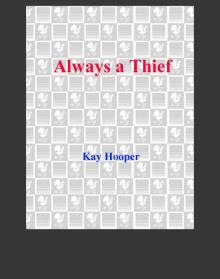 Always a Thief
Always a Thief Star-Crossed Lovers
Star-Crossed Lovers Blood Dreams
Blood Dreams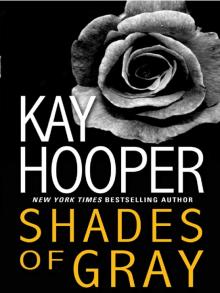 Shades of Gray
Shades of Gray Rebel Waltz
Rebel Waltz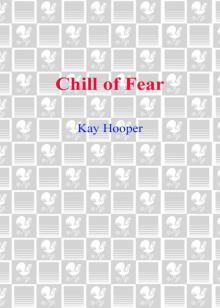 Chill of Fear
Chill of Fear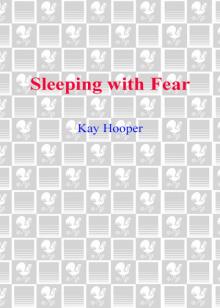 Sleeping With Fear
Sleeping With Fear After Caroline
After Caroline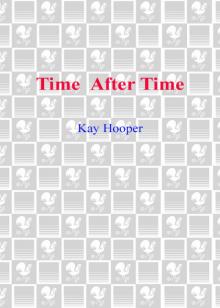 Time After Time
Time After Time Haunting Rachel
Haunting Rachel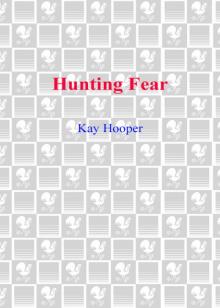 Hunting Fear
Hunting Fear Out of the Shadows
Out of the Shadows Whisper of Evil
Whisper of Evil Blood Sins
Blood Sins Hiding in the Shadows
Hiding in the Shadows C.J.'s Fate C.J.'s Fate C.J.'s Fate
C.J.'s Fate C.J.'s Fate C.J.'s Fate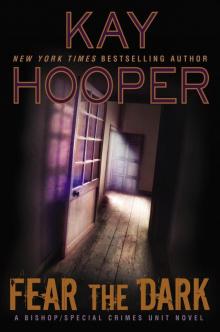 Fear the Dark
Fear the Dark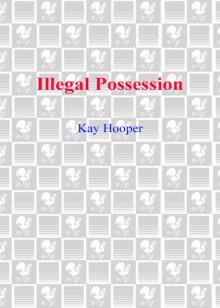 Illegal Possession
Illegal Possession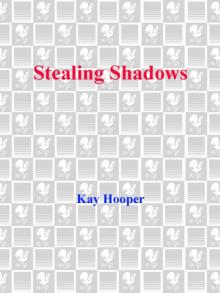 Stealing Shadows
Stealing Shadows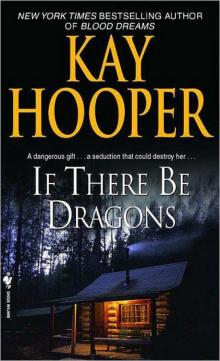 If There Be Dragons
If There Be Dragons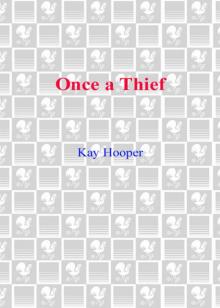 Once a Thief
Once a Thief In Serena's Web
In Serena's Web On Wings of Magic on Wings of Magic
On Wings of Magic on Wings of Magic Hostage
Hostage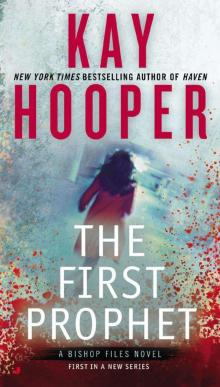 The First Prophet
The First Prophet Through the Looking Glass
Through the Looking Glass Golden Flames
Golden Flames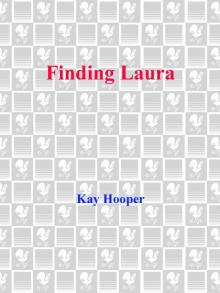 Finding Laura
Finding Laura Haven
Haven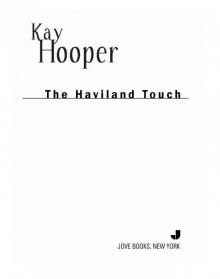 The Haviland Touch
The Haviland Touch The Lady and the Lion
The Lady and the Lion Haunted
Haunted Velvet Ligntning
Velvet Ligntning Blood Ties
Blood Ties Adelaide, the Enchantress
Adelaide, the Enchantress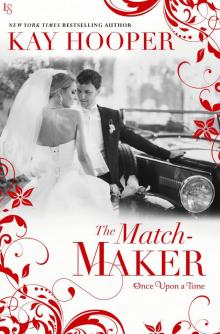 The Matchmaker
The Matchmaker Golden Threads
Golden Threads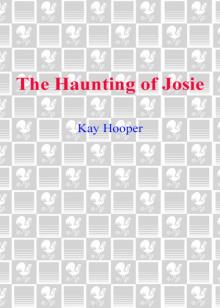 The Haunting of Josie
The Haunting of Josie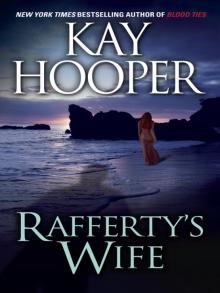 Rafferty's Wife
Rafferty's Wife Amanda
Amanda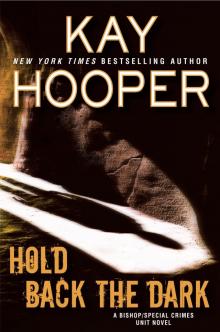 Hold Back the Dark
Hold Back the Dark Sense of Evil
Sense of Evil What Dreams May Come
What Dreams May Come Larger Than Life
Larger Than Life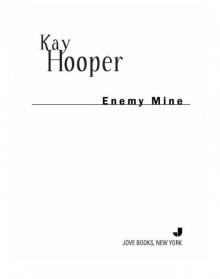 Enemy Mine
Enemy Mine Velvet Lightning
Velvet Lightning The Fall of Lucas Kendrick
The Fall of Lucas Kendrick Aces High
Aces High Captain's Paradise: A Novel
Captain's Paradise: A Novel The Wizard of Seattle
The Wizard of Seattle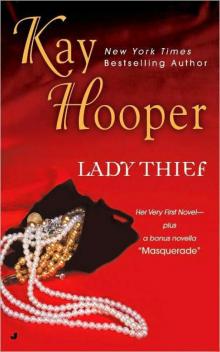 Lady Thief
Lady Thief Summer of the Unicorn
Summer of the Unicorn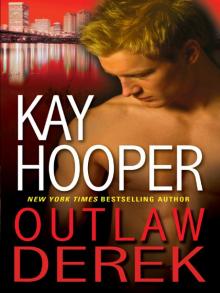 Outlaw Derek
Outlaw Derek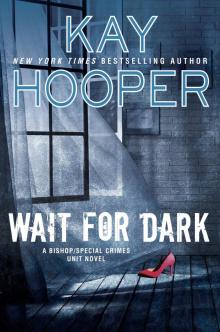 Wait for Dark
Wait for Dark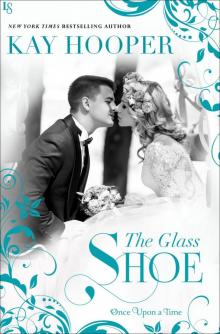 The Glass Shoe
The Glass Shoe It Takes a Thief
It Takes a Thief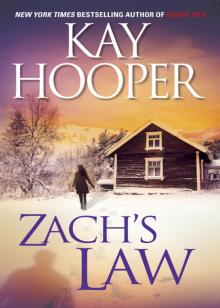 Zach's Law
Zach's Law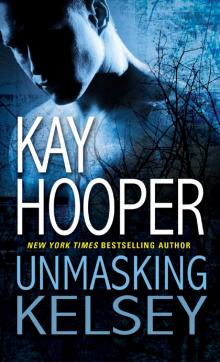 Unmasking Kelsey
Unmasking Kelsey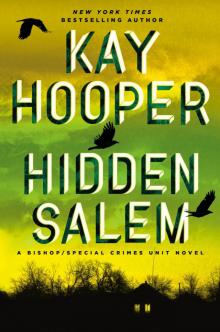 Hidden Salem
Hidden Salem